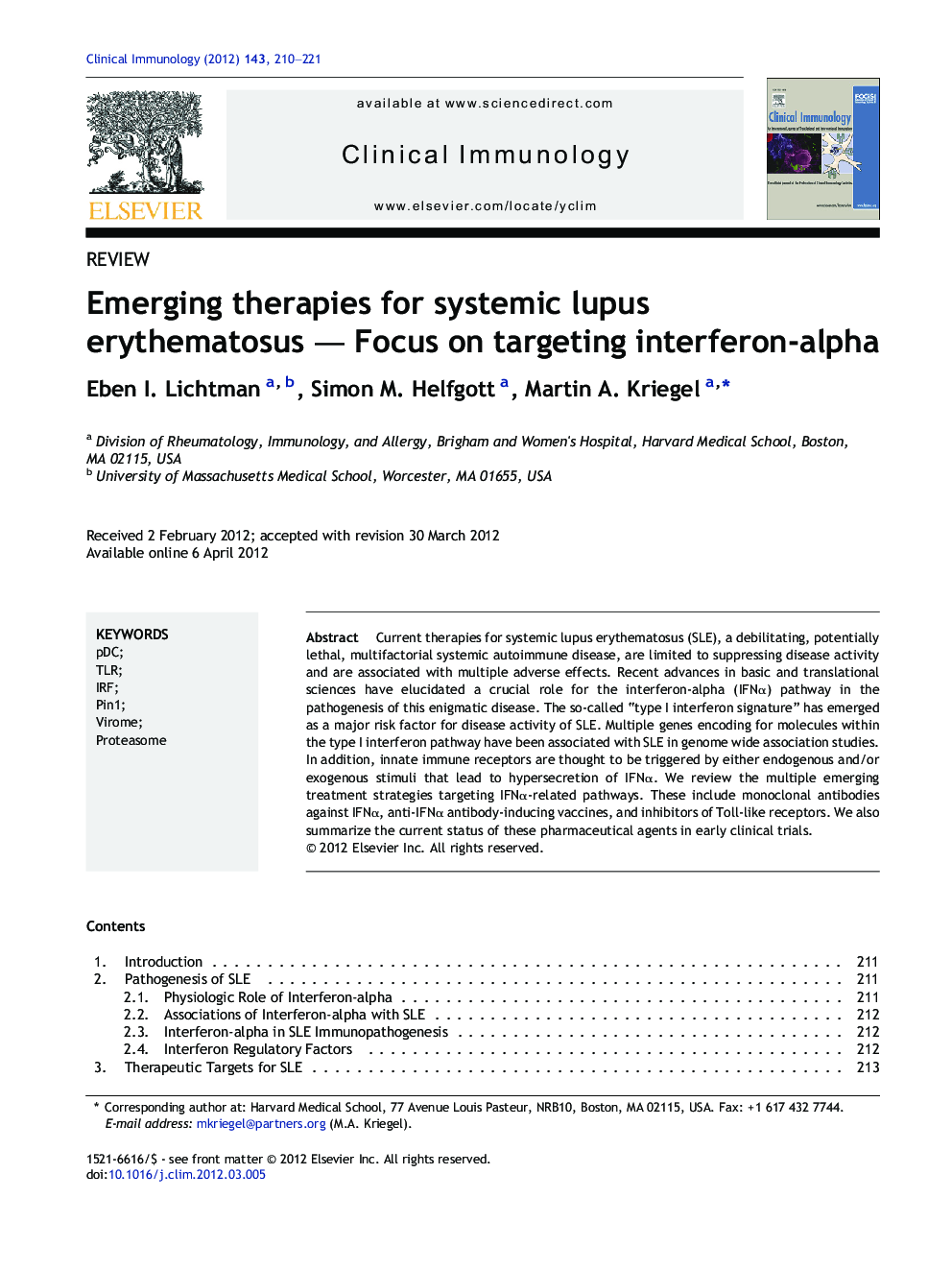| Article ID | Journal | Published Year | Pages | File Type |
|---|---|---|---|---|
| 3257003 | Clinical Immunology | 2012 | 12 Pages |
Current therapies for systemic lupus erythematosus (SLE), a debilitating, potentially lethal, multifactorial systemic autoimmune disease, are limited to suppressing disease activity and are associated with multiple adverse effects. Recent advances in basic and translational sciences have elucidated a crucial role for the interferon-alpha (IFNα) pathway in the pathogenesis of this enigmatic disease. The so-called “type I interferon signature” has emerged as a major risk factor for disease activity of SLE. Multiple genes encoding for molecules within the type I interferon pathway have been associated with SLE in genome wide association studies. In addition, innate immune receptors are thought to be triggered by either endogenous and/or exogenous stimuli that lead to hypersecretion of IFNα. We review the multiple emerging treatment strategies targeting IFNα-related pathways. These include monoclonal antibodies against IFNα, anti-IFNα antibody-inducing vaccines, and inhibitors of Toll-like receptors. We also summarize the current status of these pharmaceutical agents in early clinical trials.
► Several anti-IFNα monoclonal antibodies are being tested in early clinical trials. ► Active immunotherapy with a kinoid leads to a sustained anti-IFNα immune response. ► Novel TLR7/TLR9 inhibitors are expected to attenuate stimulation of IFNα secretion. ► Here we summarize these novel approaches to target the IFNα pathway in SLE patients.
